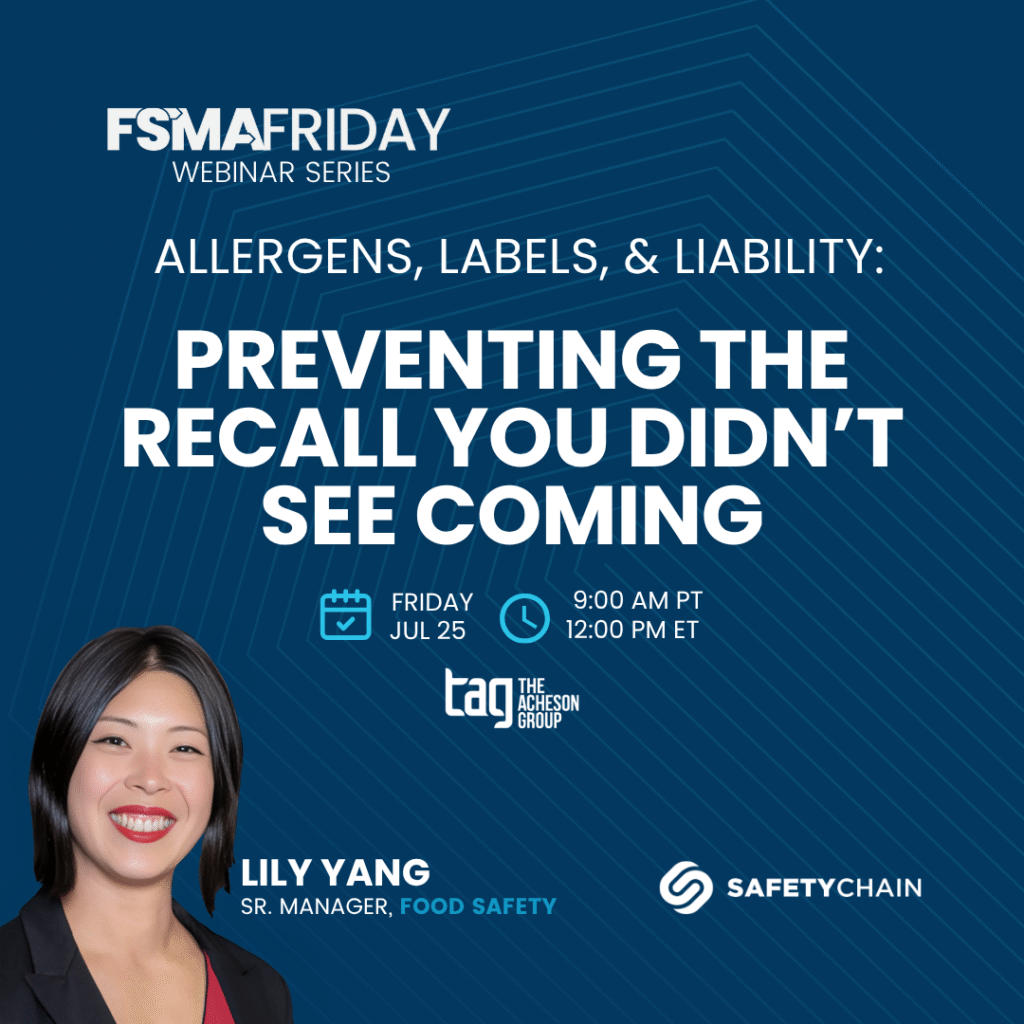Undeclared allergens now account for 57% of FDA food recalls in 2025 year-to-date, a jump from 46% overall and a clear warning that the risk is rising. The pattern is clear: one missed ingredient declaration or supplier communication breakdown triggers recalls that could have been prevented with the right controls in place.
Join TAG’s Senior Manager of Food Safety, Lily Yang, for a deep dive into the specific breakdowns that turn routine ingredient changes into crisis-level recalls. This isn’t about general best practices; it’s about the concrete protocols that catch problems before they reach your customers.
You’ll learn why allergens remain the #1 reason for recalls (FDA, 2025 YTD) along with concrete strategies to get ahead of the risk, including:
- What to include in your supplier manual to clarify roles, expectations, and change notification protocols, including language that ensures immediate notification for any ingredient, spec, or allergen change.
- How untracked ingredient switches and allergen interactions trigger downstream labeling issues, along with proven frameworks to catch these sneak-throughs before they go public.
- Why misalignment across suppliers, co-mans, and corporate teams undermines food safety, and clear steps for mapping “who does what, when” in label verification to prevent loose handoffs.
- What FSQA, operations, and company leaders can do to align on allergen controls as a cross-functional compliance priority.
While total recalls are trending slightly down in 2025, allergen-related recalls are up 16% year-to-date compared to 2024, reinforcing that the cost of gaps in your allergen management system has never been higher. Every day without these controls increases your exposure to the recalls that blindside even experienced food safety teams.
A single missed change can trigger mass product withdrawal, weeks of rework, or permanent damage to customer relationships.



